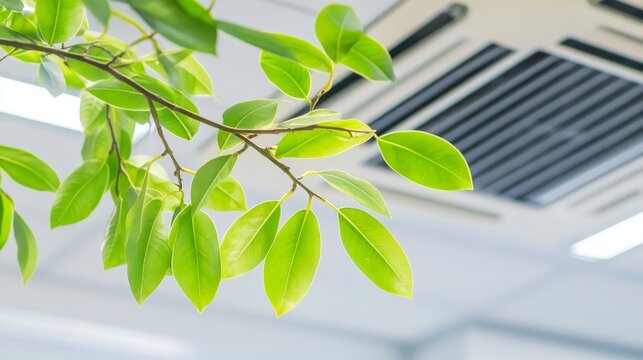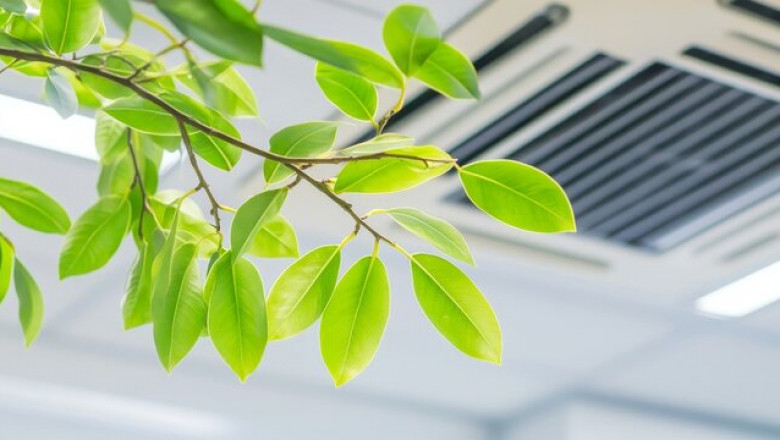views
When people think of indoor air quality, they often consider things like dust, pet dander, or mold — but few realize how much plumbing issues can contribute to poor air quality inside the home. Hidden leaks, faulty drainage, and sewer gas exposure can all affect the air you breathe every day. At Plombier Sainte Julie, we’ve helped countless homeowners uncover plumbing-related air quality issues and resolve them before they impact their health or property.
What Is Indoor Air Quality and Why Does It Matter?
Indoor air quality (IAQ) refers to the cleanliness and health of the air within your home. Poor IAQ can cause or aggravate:
- Allergies and asthma
- Respiratory infections
- Headaches and fatigue
- Long-term health issues from mold or chemical exposure
While most people look to air purifiers or ventilation systems to improve air quality, your home’s plumbing system can either help or hinder those efforts depending on how well it’s maintained.
How Plumbing Problems Impact Indoor Air Quality
1. Hidden Leaks and Mold Growth
Slow leaks under sinks, behind walls, or beneath floors can go unnoticed for months. These moist, enclosed spaces are ideal environments for mold and mildew to grow. Once mold takes hold, it releases spores into the air — affecting anyone who breathes it in.
Common symptoms include:
- Persistent coughing or sneezing
- Wheezing or difficulty breathing
- Musty odors in the home
Mold from plumbing leaks is one of the leading causes of poor IAQ in older homes and poorly ventilated spaces.
2. Sewer Gas Exposure
If your drains or plumbing traps dry out or are improperly vented, sewer gases (like methane, ammonia, and hydrogen sulfide) can enter your living space. These gases aren’t just unpleasant — they can also be harmful.
Signs of sewer gas exposure:
- Rotten egg or sulfur-like smell
- Headaches or dizziness
- Nausea or fatigue
- Irritation of eyes and throat
At Plombier Sainte Julie, we recommend having your drain vents, traps, and seals inspected regularly to avoid exposure to these dangerous fumes.
3. Poor Drainage and Bacterial Growth
Clogged or slow drains can allow standing water to build up in pipes. This stagnant water becomes a breeding ground for bacteria and mold, both of which can release contaminants into the air when disturbed.
In bathrooms, floor drains or poorly maintained shower pipes are particularly vulnerable. The result? Lingering odors, humid conditions, and respiratory irritation for the home’s occupants.
4. Water Heater or Boiler Leaks
Leaks from your water heater or boiler — especially if they involve natural gas or carbon monoxide — are a serious hazard. Even small leaks can lead to rust, mold, or excess humidity, affecting the air and overall safety of your home.
If your home has poor ventilation, these issues are compounded, as contaminants stay trapped indoors.
Prevent Plumbing Issues from Damaging Your Air Quality
1. Schedule Regular Inspections
Have your plumbing system checked at least once a year by a licensed Plombier Sainte Julie. We can identify hidden leaks, poor venting, and drainage problems before they worsen.
2. Address Leaks Immediately
If you see signs of water damage, smell mold, or notice peeling paint or warped wood, act quickly. The sooner a leak is fixed, the less chance mold has to grow and impact your air quality.
3. Keep Drains Clean
Use natural, enzyme-based cleaners to maintain drains and prevent buildup. Avoid chemical drain cleaners, which can worsen air quality by releasing toxic fumes.
4. Ensure Proper Ventilation
Check that bathroom fans, kitchen hoods, and other ventilation systems are working properly to reduce humidity and vent out potential contaminants.
5. Install Smart Detectors
Modern leak detectors and humidity sensors can alert you early to water problems that could turn into air quality issues.
When to Call a Professional
If you're experiencing persistent odors, increased allergy symptoms, or suspect hidden plumbing issues, don’t wait. These problems can escalate quickly — both in cost and health risk.
A licensed Plombier Sainte Julie can perform a full diagnostic of your plumbing system, identify sources of moisture or gas intrusion, and recommend the best course of action to protect your home and your health.
Final Thoughts
Plumbing and air quality are more closely connected than most homeowners realize. Taking care of leaks, drainage, and ventilation doesn’t just protect your home — it protects the people living in it. By staying proactive and partnering with trusted professionals, you can breathe easier knowing your home is safe and healthy.
Need help improving your home’s plumbing and air quality? Contact Plombier Repentigny for expert inspections, repairs, and long-term solutions.













Comments
0 comment